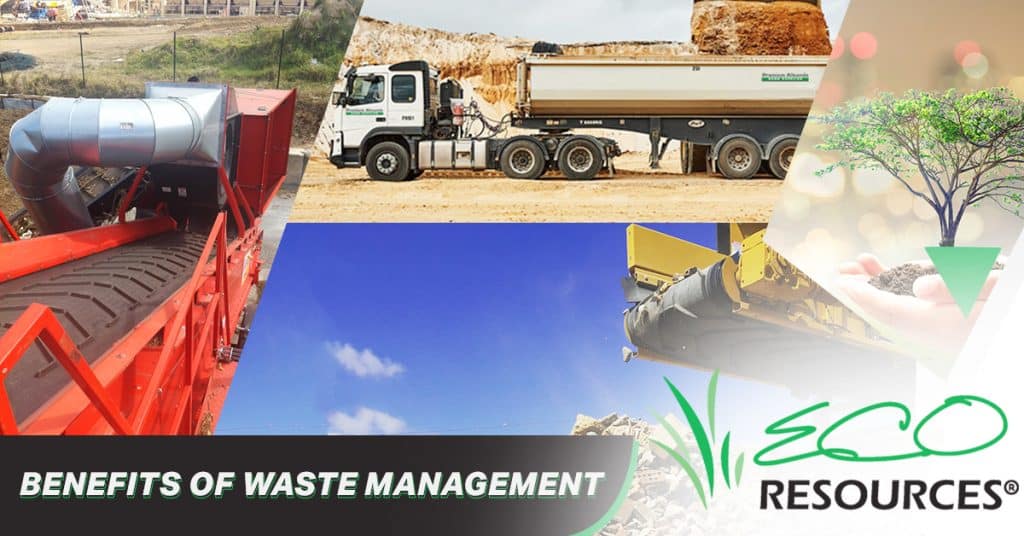

Waste management is one of the most important environmental protection strategies. The main benefits of waste management are to reduce pollution, conserve resources, and prevent damage to ecosystems.
By properly disposing of waste, we can greatly reduce the number of harmful chemicals and pollutants that enter our water, air, and soil. This not only protects human health but also helps to preserve wildlife and habitats.
In addition, waste management can help to reduce greenhouse gas emissions by preventing methane formation in landfills. And by recycling and composting, we can conserve valuable resources like water, energy, and minerals.
Implementing an effective waste management strategy is essential for protecting our environment and ensuring a sustainable future.
The environmental benefits of waste management are also many and varied.
Perhaps most importantly, it helps to reduce the amount of waste that is sent to landfill sites. They hold many different types of waste that are potentially harmful to the environment. So landfills should be our last resort for waste disposal.
With proper waste disposal, we reduce the greenhouse gas emissions associated with the decomposition of organic waste.
In addition, waste management can help to reduce the pollution caused by leachate. It is a hazardous liquid that can seep out of landfill sites and contaminate local water supplies.
Furthermore, by recycling and reusing materials, waste management reduces the need for virgin resources, saving energy and reducing pollution associated with their extraction and processing.
Ultimately, waste management is an essential tool in protecting the environment and safeguarding human health.
There are numerous economic benefits associated with effective waste management.
Perhaps the most obvious benefit is that it can help to reduce the overall cost of waste disposal. This is because properly managed waste is more likely to be recycled or reused, rather than simply sent to landfills.
In addition, effective waste management can also help to create jobs. For example, sorting and processing recyclable materials requires a workforce, as does manufacturing products from recycled materials.
Moreover, good waste management practices can also help to boost a company’s reputation, making it more appealing to consumers and investors.
In today’s world, where sustainability is increasingly important, businesses that can demonstrate good waste management practices are at a distinct advantage. Ultimately, there are many economic benefits to be gained from managing waste effectively.
Waste management is an essential part of any community, as it helps to protect the environment and public health. However, it can also be a significant cost for local governments and businesses. Finding cost-effective solutions for waste management is therefore an important goal for many organisations.
One way to reduce waste management costs is through the implementation of recycling programs. By diverting recyclable materials from landfills and processing them into new products, communities can save on the cost of disposing of waste and potentially even generate revenue.
Another cost-effective option is the use of composting programs. Composting organic waste, such as food scraps and yard waste, can significantly reduce the amount of waste that needs to be disposed of in landfills. In addition to reducing disposal costs, composting can also create a valuable product that can be used as a soil amendment in gardens and agricultural settings.
Another option is the use of incineration or thermal treatment to process waste. While this method can be controversial, it can also be an effective way to reduce the volume of waste that needs to be disposed of, as well as generate electricity or heat.
Finally, reducing the amount of waste that is produced in the first place can also be a cost-effective solution. This can be achieved through the implementation of waste reduction initiatives, such as encouraging the use of reusable bags and containers, promoting the use of digital communication instead of paper, and implementing packaging reduction strategies.
Overall, there are many options for cost-effective waste management, and the best approach will depend on the specific needs and resources of a community. By carefully considering all of the available options and working to reduce waste at the source, communities can develop effective and sustainable waste management strategies.
Eco Resources is dedicated to promoting sustainable and responsible waste management practices, and we believe that everyone has a role to play in keeping our communities clean and healthy. That’s why we are calling on you to join us in our efforts to properly dispose of waste and protect the environment.
Here are a few simple steps you can take to make a difference:
By following these simple steps, you can make a positive impact on the environment and help to create a cleaner and healthier world for everyone. Thank you for doing your part with Eco Resources.

Kristy Sumich is the owner and director of Eco Resources, a prominent waste management and recycling service in Western Australia. With deep industry knowledge and hands-on operational experience, Kristy is dedicated to providing sustainable solutions in waste management.
All rights reserved © Eco Resources. Website by Selling Online Made Simple. Sitemap.